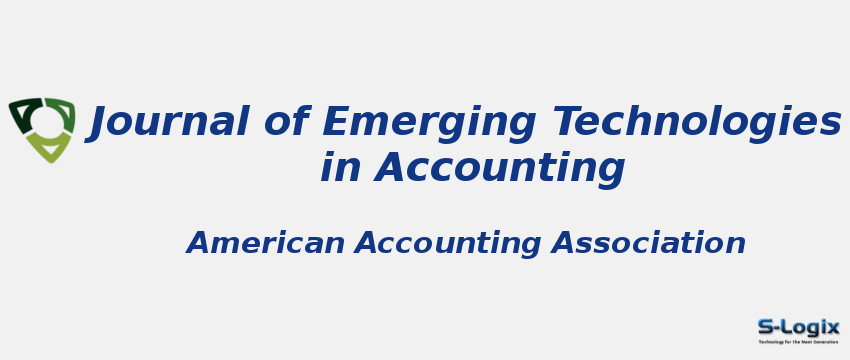Journal Home: Journal Homepage
Editor-in-Chief: Miklos A. Vasarhelyi
Print ISSN: 15541908,
Electronic ISSN: 15587940
Abstracting and Indexing: Scopus
Imapct Factor :
Subject Area and Category: Business, Management and Accounting, Accounting, Computer Science, Computer Science Applications
Publication Frequency:
H Index: 31
Q1:
Q2: Accounting
Q3:
Q4:
Cite Score: 4.6
SNIP: 0.750
Journal Rank(SJR): 0.642
Latest Articles: Latest Articles in Journal of Emerging Technologies in Accounting
Guidelines for Authors: Journal of Emerging Technologies in Accounting Author Guidelines
Paper Submissions: Paper Submissions in Journal of Emerging Technologies in Accounting
Publisher: American Accounting Association
Country: United States
